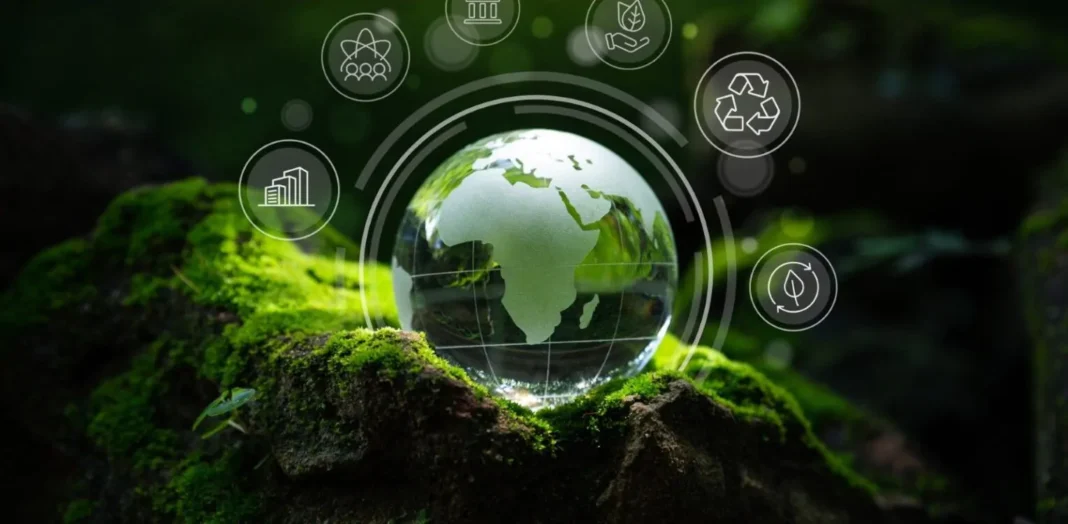In an era where climate change and energy demands go hand in hand, Indus Towers and Indian technology collaboration are stepping forward with innovative solutions aimed at sustainable development.
This groundbreaking partnership, forged between Indus Towers and the Indian Institute of Technology Bombay (IIT Bombay), signals a new direction for India’s renewable energy ambitions. Through targeted research in solar power and energy storage, this initiative seeks to redefine the country’s clean energy landscape.
A Vision for Sustainable Energy
To begin with, the collaboration focuses on two pioneering areas of research. The first revolves around perovskite solar cell technology, a new-generation material offering a potential leap in solar energy efficiency.
Unlike traditional silicon-based photovoltaic (PV) cells, perovskite cells promise enhanced efficiency without inflating costs. Because of their adaptability and cost-effectiveness, they hold promise for both ground-based solar farms and space-related energy systems.
Moreover, this technological leap could make solar energy more accessible across diverse geographies. Not only does this benefit urban centers, but it also brings much-needed innovation to remote and underserved regions.
Turning Agricultural Waste into Clean Power
Equally important is the second initiative of this collaboration, which centers around converting rice straw, an agricultural by-product, into doped hard carbon materials. Typically burned and discarded, rice straw has often been a contributor to air pollution across northern India. However, by reimagining it as a valuable resource, the research team at IIT Bombay aims to craft a scalable solution for sodium-ion batteries.
These doped carbon materials can serve as a low-cost and eco-friendly alternative to traditional lithium-ion batteries. When used as anodes or additives, they support the growing demand for battery storage while cutting down on the environmental damage caused by conventional options.
Furthermore, leveraging indigenous materials like rice straw underlines the importance of local resources in clean technology. This not only supports India’s rural economy but also minimizes reliance on imported minerals, which are often sourced under unsustainable conditions abroad.
Expanding Green Partnerships
What sets this initiative apart is not just its technical ambition but also its alignment with broader national goals. The collaboration reflects the growing interest in public-private partnerships for environmental progress. Notably, this is not Indus Towers’ first step toward green innovation.
In 2024, NTPC Green Energy Ltd (NGEL), a subsidiary of India’s state-run power entity NTPC, signed a Memorandum of Understanding (MoU) with Indus Towers. That agreement emphasized the mutual exploration of renewable energy avenues, including solar, wind, and hybrid energy storage systems.
This continuity shows a consistent commitment to building sustainable infrastructure. Through such collaborations, India’s energy sector is evolving to support the government’s vision of a carbon-neutral economy.
It is evident that the strategic alignment between Indus Towers and Indian technology is more than a standalone initiative; it is part of a broader shift toward energy self-sufficiency and environmental responsibility.
Why This Matters Now
As India moves rapidly toward industrial growth, the energy demands continue to rise. Conventional energy sources are proving insufficient and environmentally unsustainable. Therefore, innovations like perovskite solar cells and sodium-ion batteries come at a crucial time. They offer not just technical solutions but also scalable models that fit the Indian context.
Additionally, this research-led approach allows stakeholders to test, improve, and implement these technologies with scientific precision.
With institutions like IIT Bombay involved, the credibility and potential for impact grow significantly. That’s why collaborations like these are essential, they ensure that academic research finds real-world applications and contributes directly to economic and environmental resilience.
Expert Editorial Comment
In summary, the partnership between Indus Towers and Indian technology institutes marks a significant milestone in the path toward sustainable development.
From solar innovations to agricultural waste repurposing, this alliance is a bold step in redefining how India meets its energy needs.
With such initiatives taking root, a cleaner, greener future is no longer a distant dream but an emerging reality.

